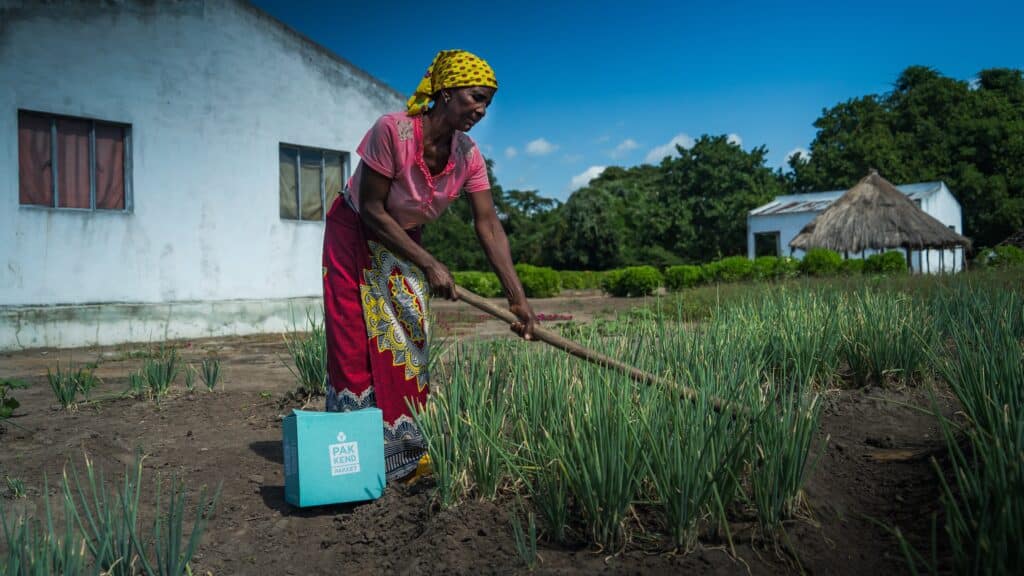Column CEO: Done in a flash
Written by: Agnes Kroese, CEO of Dorcas
Within ten minutes, you can have your bananas, soft drinks, or dessert delivered. Just add them to your basket in the app, check out, and all you have to do is open the door for the courier, who will be there in a flash.
I have to admit that I still do my shopping the old-fashioned way, but I couldn’t help but think about the phenomenon of rapid grocery delivery while we’re working on the Dorcas Food Campaign. It’s so easy to take for granted that we can have our groceries delivered quickly, or that we can choose from twenty types of cheese or a whole range of fresh bread in the supermarket.
I still clearly remember the first time I went to a supermarket in the Netherlands after living in South Sudan for years. As I looked at shelves stacked with various kinds of peanut butter, all I could see was the image of a severely malnourished little boy sitting on his mother’s lap in one of our clinics. In many countries, it’s far from guaranteed that there will be food on the table in a flash—or any food at all. In the Netherlands, we are quite privileged, though I’m fully aware that significant disparities exist here too. Where one person can easily order only top brands, another depends on whatever is included in their food bank package that week.
At Dorcas, we are committed to supporting people in need, for example in Ukraine, Ethiopia and Lebanon. One way we do this is through the Dorcas Food Campaign. Through this campaign, we ensure that people are fed who would otherwise have to miss out on healthy food. You may have seen our volunteers in the past standing in supermarkets asking people to donate one or more food items for the Food Campaign.
Nowadays, instead of shipping products or goods from the Netherlands, we buy them locally or support people to grow their own food. This allows us to better match local tastes and needs and support the local economy. And it’s much more sustainable.
It took some time to get used to, buying a symbolic parcel rather than a tangible bag of rice, pasta or canned vegetables. But it’s a great example of how, as a humanitarian organisation, we continue to learn and innovate to ensure the quality of our work and have the greatest possible impact for people in need. This new way of donating food parcels is actually much more effective, and that’s what it’s all about in the end!
If you want to support the Dorcas Food Campaign after reading this column, the national action week is about to start. And if you don’t see us in your local supermarket, a donation can be made in a flash using the QR code.

Agnes Kroes is CEO of Dorcas. Agnes: ‘I contribute with great dedication to our mission in creating opportunities for people and communities to flourish. One of the ways I do this is through a monthly column in Dutch newspaper Nederlands Dagblad. In this column, I share insights from my professional experience at Dorcas. My aim is to inspire, inform and encourage readers to engage with Dorcas’ initiatives, campaigns, and projects.‘

02 November 2024
Are you inspired?
Read the next story or contact us to get to know more about making an impact together.